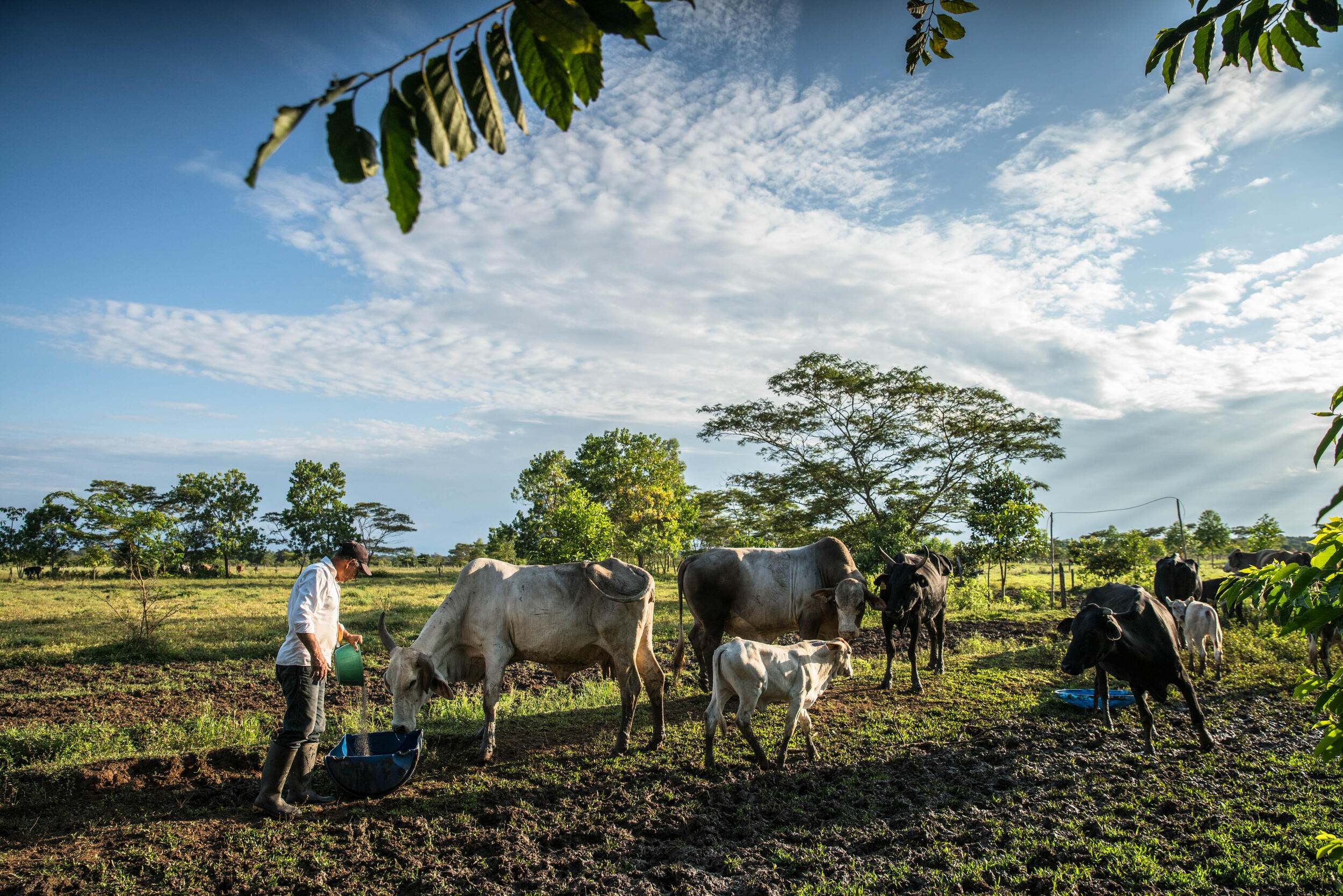Globally, livestock production requires vast swaths of land for the grazing of cattle, which can present conservation, climate, and ecological challenges. Clearing land for monoculture pasture can have significant impacts on biodiversity, atmospheric carbon, and landscape cohesion. One possible solution is the use of silvopasture systems (SPS) – the incorporation of trees and shrubs in grazing lands – which are being promoted as a promising alternative to reduce the environmental footprint of pasture monocultures and enhance productivity and climate benefits to farmers and society. Despite these benefits, SPS are not widely adopted, and their potential for scaling is not fully understood. To meet this challenge, we urgently need evidence-based guidance on how to optimally scale up SPS through existing policies, incentives, and implementation efforts to maximize farmer, climate, and conservation benefits.
Our Approach: This working group convenes a coalition of leaders, scientists, and practitioners, who were engaged in one of the largest implementation efforts of silvopasture systems (SPS) in Colombia. The group will explore the real-world drivers and impacts of on-farm SPS adoption, and characteristics of farms and landscapes where win-wins exist across productivity, conservation, and well-being outcomes. Using biophysical and social survey data, coupled with environmental and landscape-level data, the group will undertake trade-off, multifunctionality analyses. The results will evaluate the efficacy of current policies and inform incentive-based certification schemes and farm planning tools promoting SPS to maximize their benefits for people and nature.

- Synthesize a multidimensional dataset from nearly 4,000 farms in Colombia, coupled with spatial modeling to explore real-world drivers of on-farm adoption, evaluate social-ecological impacts, and predict the benefits of silvopasture implementation at landscape scales
- Based on the science and in collaboration with end-users, co-develop guidance to inform sustainable cattle ranching and climate policies, environmental certification standards, and a farm planning tool to help scale up silvopasture adoption in Colombia and beyond
Strategies to diversify farming systems by managing multiple species, incorporating areas of noncrop vegetation, or conserving soil or water have been posed as ways of countering the negative environmental effects of simplified agriculture. This paper from SNAPP’s Sustainable Cattle Ranching working group finds that implementing livestock diversification or soil conservation benefits social and environmental outcomes, especially for biodiversity.
Colombian Federation of Ranchers (FEDEGAN)
The Nature Conservancy
Alexander von Humboldt Biological Resources Research Institute
Wildlife Conservation Society
International Center for Tropical Agriculture (CIAT), CGIAR Initiative of Livestock and Climate
The Nature Conservancy
University of British Columbia
Center for Research on Sustainable Agricultural Production Systems (CIPAV)
The Nature Conservancy
Alexander von Humboldt Biological Resources Research Institute
Wildlife Conservation Society
Helmholtz Centre for Environmental Research, UFZ
Universidad Nacional de Río Negro
Colombian Dung Beetle Collection
University of British Columbia
Universidad de Antioquia
Colombia Ministry of Environment and Sustainable Development
The Nature Conservancy
Helmholtz Centre for Environmental Research, UFZ
Helmholtz Centre for Environmental Research, UFZ
The Nature Conservancy
University of British Columbia
The Nature Conservancy
The Nature Conservancy
Center for Research on Sustainable Agricultural Production Systems (CIPAV)
Alexander von Humboldt Biological Resources Research Institute
The Nature Conservancy
Helmholtz Centre for Environmental Research, UFZ
The Nature Conservancy
International Center for Tropical Agriculture (CIAT)
The Nature Conservancy
Helmholtz Centre for Environmental Research, UFZ